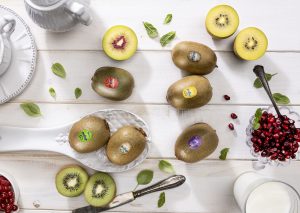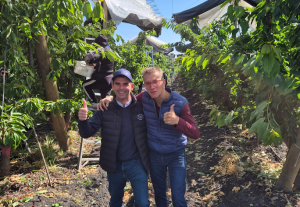Product scarcity will become more obvious in the first part of the campaign, that is to say, it will affect the fruit that will start being harvested first and will be marketed from the end of September until the end of October.
The chairman of the Spanish Persimmon Association, Pascual Prats, affirms that “the pollination, fertilisation and setting of the persimmons coincided with the bad weather in the spring” and, therefore, “they were not good.” Prats forecasts a “very limited volume” for the month of October.
However, the chairman of the association expects a change at the end of October, “although still with an important reduction in production.” Therefore, Prats estimates between 160,000 and 180,000 kilos in total for the campaign and he affirms that, in particular, Huelva and the Valencian Community will see their production decrease a great deal.
Another important reason that explains this decrease is the steep rise in production expenses: Costs have risen by between 20 and 25 cents compared to the previous campaign,” Prats states, and adds that the electricity alone “means an extra 40 or 50%.” Added to this, the packaging costs have risen: “previously a wooden box cost 50 cents, now it is 74.”
However, the chairman of the Spanish Persimmon Association guarantees that, for the moment, they have not “received a single euro of aid from any Government, either regional or national.”
Furthermore, it is expected that the inspectors from the Chinese government visit Spain soon, although there is still no specific date set for this. In a move forward in the negotiations in July, Anecoop and the Spanish Persimmon Association requested the Spanish Trade Ministry for a date on which it would be good for the inspectors to visit the plantations: the first week in November. “They have yet to give an answer about the dates on which they are going to come, but hopefully they will come, and sign the agreement next year. It would be very positive to be able to export to China because the world has become globalised and if other productions come to Europe, we also have to export, with all the difficulties that this entails,” Prats affirms.
But this persimmon campaign could face another significant difficulty, such as the shortage of products such as CO2, essential for removing the astringency of the fruit kept in cold storage. “This is another uncertainty this autumn,” the executive concludes.






















